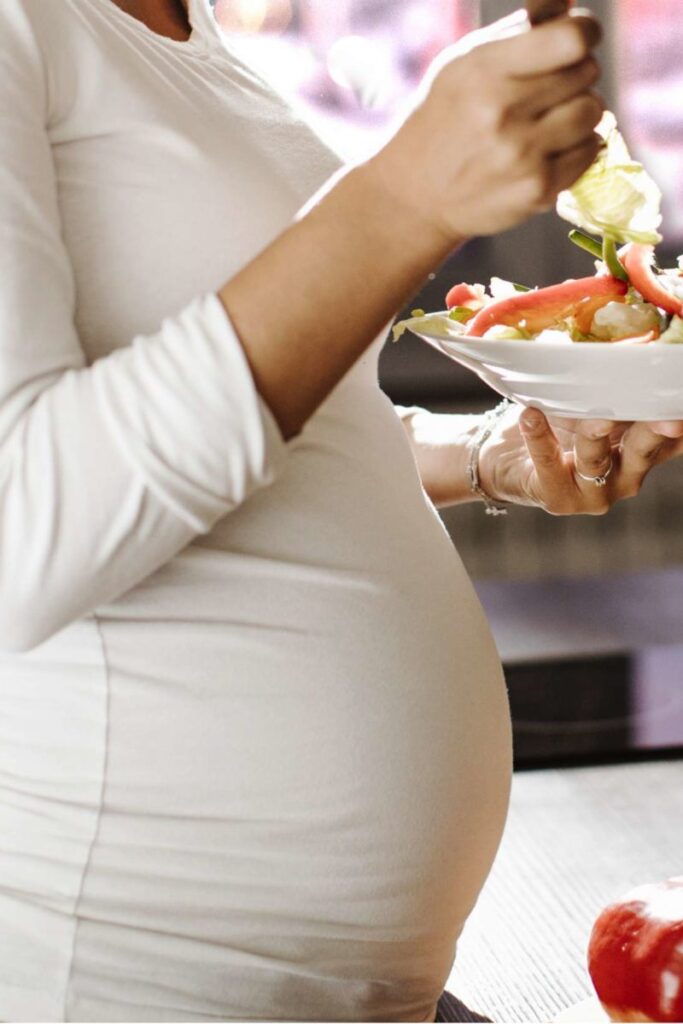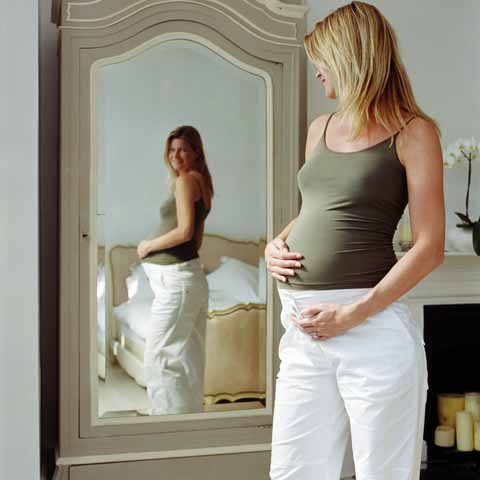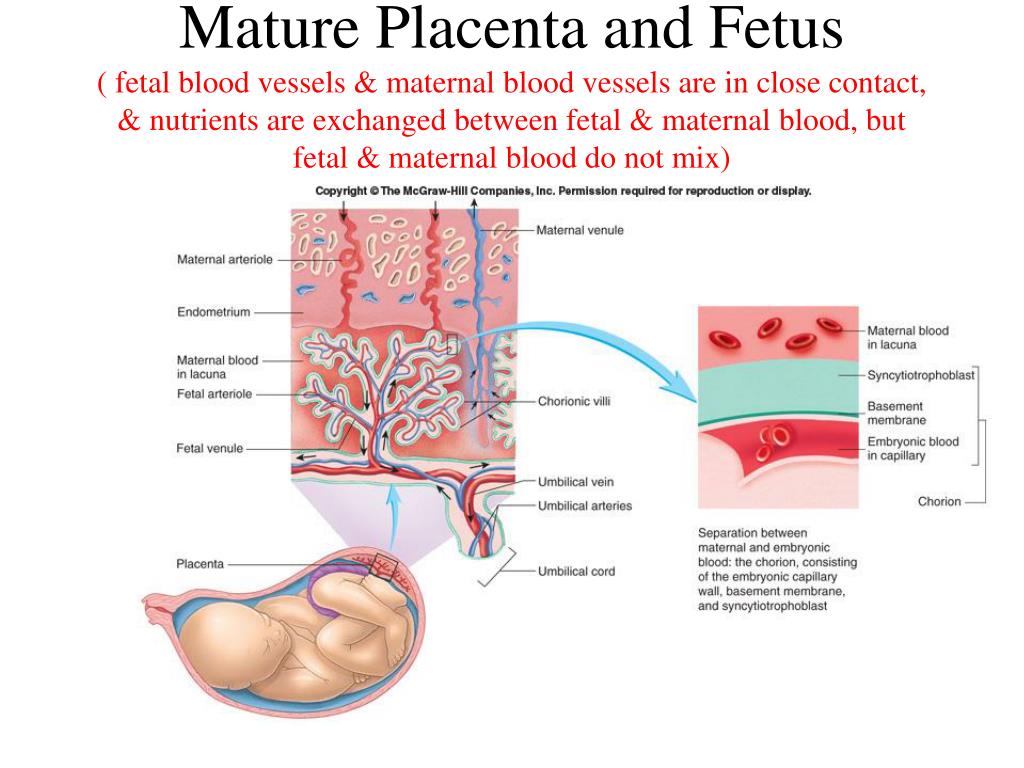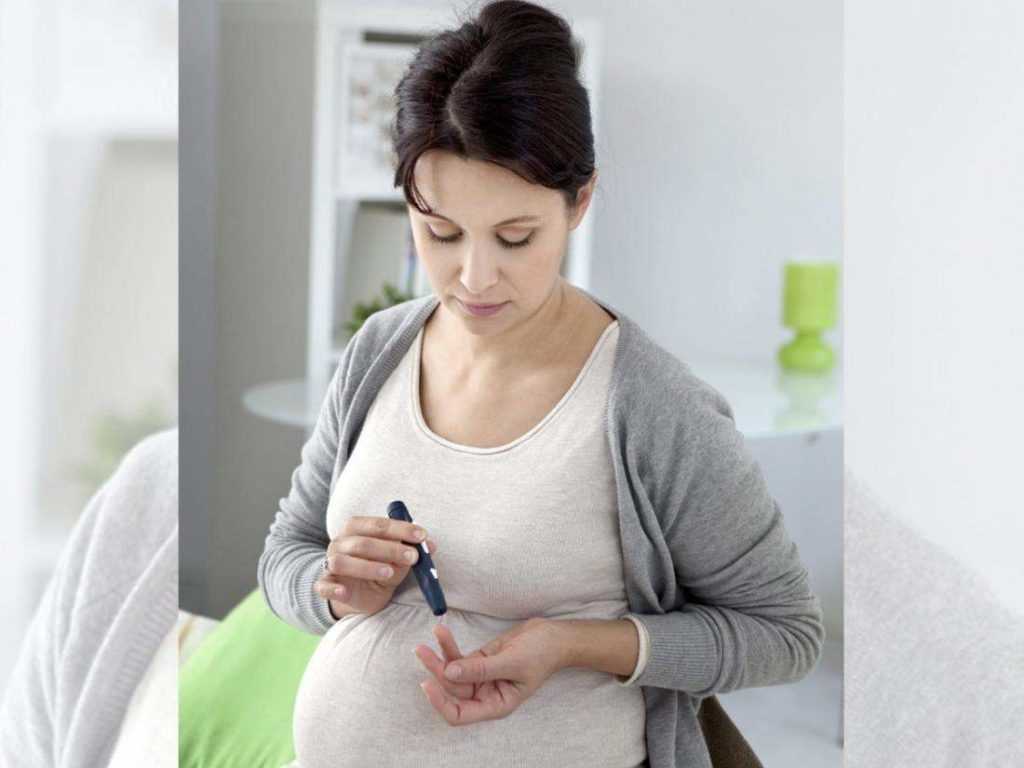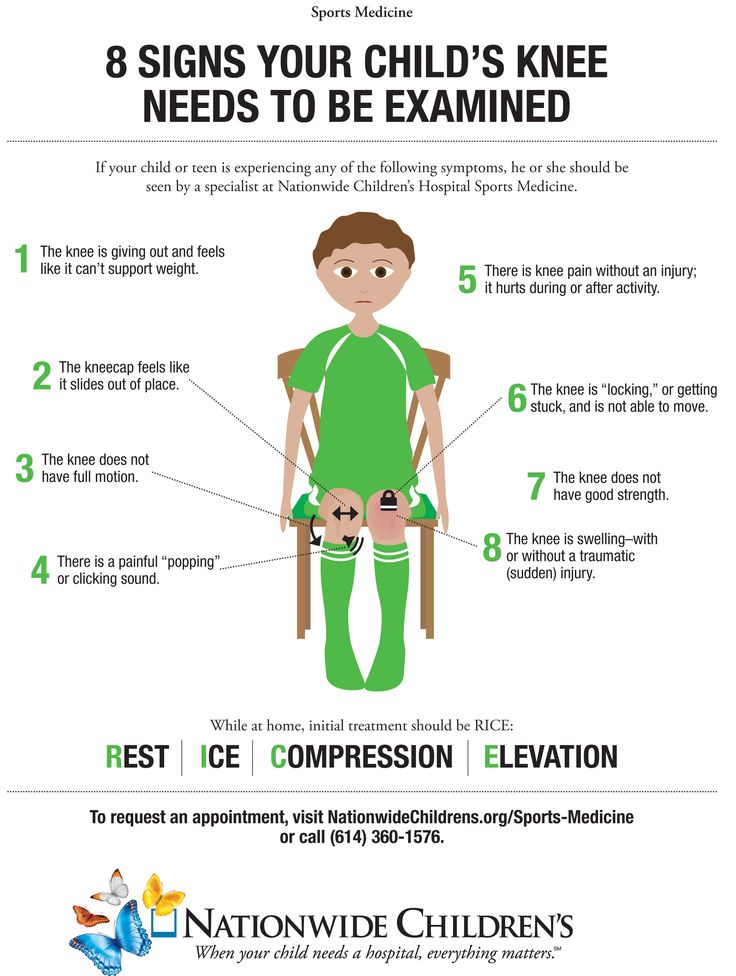Feeling hot during pregnancy third trimester
Why Am I Always Feeling Hot During Pregnancy?
Though pregnancy is the most exciting and memorable experience for a woman, it can trigger multiple changes including, mood swings, weight gain, morning sickness, and especially Increased body temperature. It is quite normal to experience a rise in body temperature during pregnancy, but being aware of the factors causing it will help you stay prepared and avoid them to prevent overheating.
What Is Physically Going on That Makes Pregnant Women Feel Hot?
Here are the factors that contribute to feeling hot in pregnancy:
Physical changes
1. Hormonal Imbalance: In the first trimester, hormonal changes might cause increased body temperature with morning sickness.
2. Widened Blood Vessels: More blood is required to carry oxygen and food to your baby, so your blood vessels slightly dilate, bringing the blood closer to the skin, thus making you feel hot. You can also expect a 50% increase in blood volume by the 34th week of your pregnancy.
3. High Metabolic Rate: As your heart has extra blood, it has to work harder to ensure proper circulation. During the 8th week of pregnancy, your heart pumps blood 20% faster than usual, causing increased heart rate. A higher heart rate increases your metabolism, which in turn increases your body temperature.
4. Carrying Your Baby During 3rd Trimester: Your baby gives off your body the heat that you absorb, thus making you feel hotter from inside out. In case you are carrying twins or triplets, you may feel hotter than normal pregnancies.
Some Other Factors
1. Hot Tubs, Saunas, and Hot Baths: Spending too much time in a hot tub, sauna, or hot bath might not always be a healthy choice for pregnant women, even though these are comforting options to relieve stress and soothe muscle pain. It is best to consult with your gynecologist before you go for a sauna, a hot bath, or use a hot tub during pregnancy.
2. Heating Pad
Heating Pad
Although a hot water bottle or heating pad can soothe your muscle pain, use it occasionally during pregnancy. Make sure:
- Not to use it near your stomach, to avoid heating your baby.
- The heating pad is not too hot to prevent burning your skin.
- It is best to use a towel or soft cloth between your body and the heating pad to avoid overheating.
3. Hot Weather
Hot weather can make you overheat and cause health problems, such as heat stroke, dehydration, and heat exhaustion. Therefore, take essential measures to stay cooler.
If you have to go out in hot weather, follow these tips to cool down your body and baby:
- Wear a scarf or a hat to cover your head to protect it from the heat
- Wear loose, breathable cotton or linen outfits to keep you comfortable
- Drink plenty of water to avoid the onset of dehydration
- Use an umbrella to avoid direct sun exposure
- Keep a wet towel to wipe sweats
How Can You Cool Off During Pregnancy?
Follow these tips to keep you cool during pregnancy:
1.
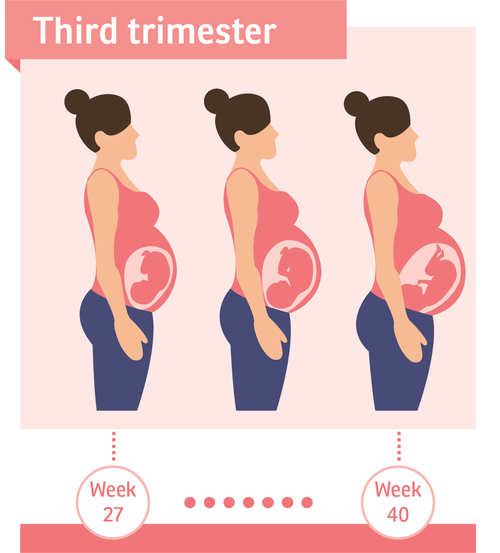 Stay Hydrated
Stay HydratedTo stay adequately hydrated, drink approximately 8 to 12 glasses of water every day.
2. Practice Swimming
While keeping you cool, swimming increases your blood circulation, thus reducing swelling and stress. You can find a local pool or a safe body of water to practice swimming.
3. Avoid Hot Beverages and Foods
Taking a hot drink or food may increase your body temperature. Instead, use cold alternatives like iced decaffeinated tea or gazpacho.
4. Eat Homemade Popsicles
Make popsicles with unsweetened yogurt and frozen fruits, such as pineapple, watermelon, blueberries, and strawberries to get essential vitamins, minerals, fiber, and calcium.
5. Use Peppermint Oil
Mix 3-5 drops of peppermint oil with one drop of coconut oil and apply it on your chest and shoulders to alleviate nausea and feel rejuvenated and cool.
6. Take a Short Nap
Taking a short nap can help reduce your body temperature, as your body will use less energy while sleeping.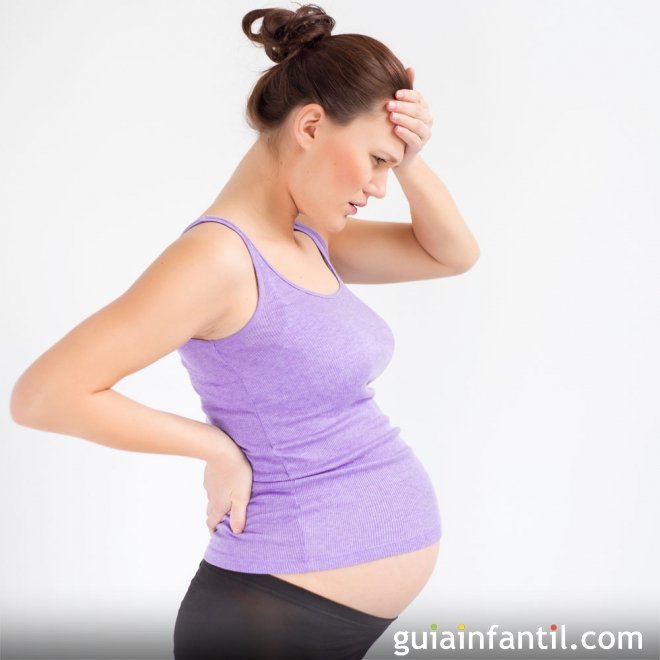
7. Grow Cooling and Purifying Houseplants
Plants such as aloe vera, snake plants, and fern can provide a cooling effect while purifying the air in the space. Therefore, grow them in the room where you spend most of your time.
8. Keep Your Windows Open During the Night and Closed During the Morning and Afternoons
Open your windows in the evening (after sunset) to keep your home cool and close them in the morning to trap the cool air and prevent heat from the sun.
9. Create a Perfect Sleeping Place
Pregnant women need sufficient and undisturbed sleep. To do so, wear a loose nightdress and use moisture-wicking bedspreads, a noise-free ceiling or floor fan, and blackout curtains to prevent the sun’s heat in the morning.
When Should a Pregnant Woman Seek Emergency Medical Care Because of Overheating?
Though feeling overheated during pregnancy and having night sweats is normal, visit your doctor immediately if you also have:
- Diarrhea
- Flu symptoms
- A fever above 101°F
- Muscle aches
- Nausea
Schedule an appointment with North Atlanta Women's Care today if you are looking for the best gynecologist near you for pregnancy overheating issues or any related questions.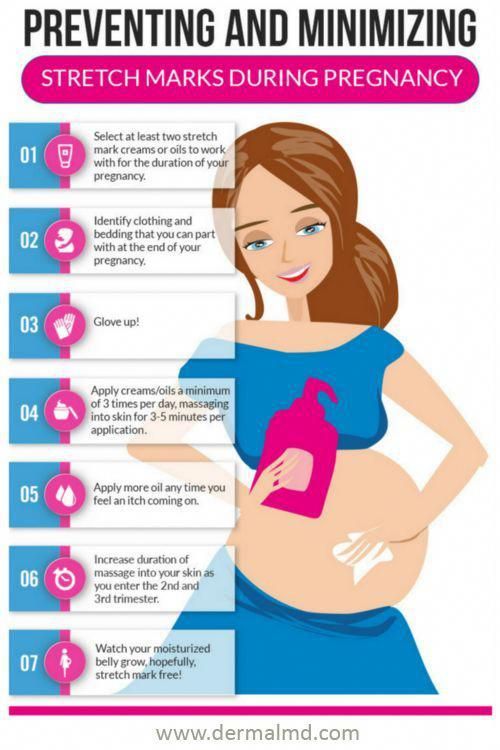 Our gynecologists provide the best possible treatment to help women get relief from symptoms of Feeling hot during pregnancy.
Our gynecologists provide the best possible treatment to help women get relief from symptoms of Feeling hot during pregnancy.
What It Means for You and Baby
You’re avoiding drinking alcohol and eating anything you can’t pronounce; you’ve limited your caffeine and even stopped taking your usual pain medication for headaches. But do you also need to literally keep your cool to protect your growing baby?
Yes — to a degree (no pun intended). Medical research shows that overheating during pregnancy can put your baby at risk. Health guidelines advise that getting your core body temperature at or over 102°F (39°C) can be too hot for your little one (and for you, too!).
But also, it’s normal to feel somewhat warmer when you’re pregnant — you really do have a bun in the oven. Several body changes during pregnancy can slightly raise your body temperature, and that’s completely fine. It’s when you’re exposed to too much heat that you can feel unwell and it can affect how your little one develops.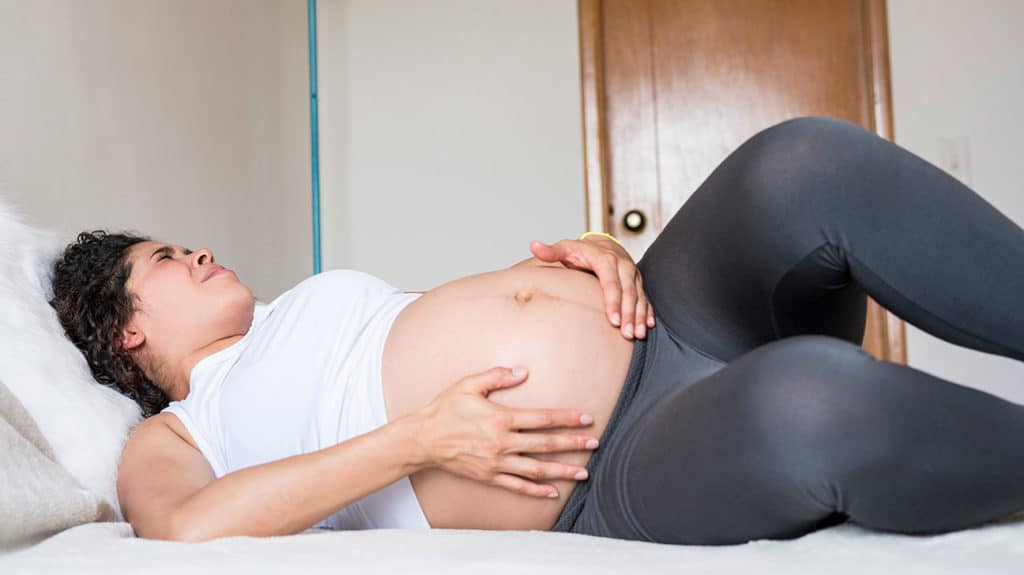
According to medical studies, heat stress can cause problems with how a baby’s spinal cord and backbones develop. These complications are called neural tube defects.
Fortunately, even though you may feel hotter, it’s fairly difficult to raise your body temperature to harmful levels — even during pregnancy.
That pregnancy glow is very likely part joy and part flushing from heat. You’re not imagining it — every stage of pregnancy can slightly raise your body temperature. Your skin may feel warmer to touch. You’re likely sweating more and may even have night sweats.
At the beginning of your pregnancy, new hormones are like little workers that help keep everything humming along smoothly. These hormonal changes also raise your body temperature a small amount. (Plus, they sometimes cause side effects like morning sickness — but that’s a whole other article.)
Several other changes happen as your body prepares to grow and nourish new life. More blood is needed to carry food and oxygen to your baby. In fact, your blood volume increases by up to 50 percent by week 34 of pregnancy.
In fact, your blood volume increases by up to 50 percent by week 34 of pregnancy.
The heart keeps up by working harder than it already does. By the eighth week of pregnancy, your heart is pumping blood 20 percent faster. A higher heart rate raises metabolism, which also slightly spikes your body temperature.
Blood vessels throughout your body widen to deliver all this blood. This includes the blood vessels near your skin. More blood flows to your skin — causing you to flush (or glow) and making you feel warmer.
By the third trimester, carrying your baby also means carrying around your personal built-in heater. Your growing little one gives off body heat that you absorb. This can make you feel hotter from the inside out. Pregnant with twins? Yes, you have two little portable heaters of joy.
Simmering in a hot tub might sound relaxing to your aching pregnant body, but it’s best to cool off in a pool instead. Pregnancy and hot tubs don’t mix.
If you do want a dip in a hot tub, experts say limit it to 10 minutes only. Staying in a hot tub longer can raise your body temperature over 101°F (38.3°C).
Staying in a hot tub longer can raise your body temperature over 101°F (38.3°C).
Read more: Hot tubs and pregnancy
The same goes for dry or wet saunas. Overheating can occur if you stay in a sauna for too long. Medical research found that most women at any stage in their pregnancy can safely stay in a 158°F (70°C) sauna for only up to 20 minutes without overheating.
Again, if you always feel hot or unwell while in the sauna, it’s best to get out immediately or avoid saunas entirely during your pregnancy.
A bath at home may not be as hot as a hot tub or sauna, but you still need to avoid hot water. Stick to a warm bath instead. The water shouldn’t be steaming, just warm enough to be comfortable. Keep a window open in the bathroom to keep things airy and cooler.
A heating pad or a hot water bottle can help soothe muscle pain right where you need it. It’s OK to use one occasionally while you’re pregnant. But it’s best to avoid using it near your stomach — you don’t want to directly heat up your baby. There is danger to heating up the belly.
There is danger to heating up the belly.
Make sure the heating pad is a comfortable temperature. Too hot and it can scald your skin. Use a towel or soft cloth between the heating pad and your body to avoid too much heat.
You can also spot treat areas with a heating pad. Rest your tired feet on one or soothe back pain. Never use a heating pad while sleeping. If you think you might fall asleep during heat therapy, unplug it first!
Heat exhaustion and heat stroke can happen to anyone in very hot weather or during strenuous exercise. The hot sun can make you overheat and cause serious health problems. When you’re pregnant, it’s even more important to stay cool on a hot day.
If you must be outside in hot weather, try these tips to cool down you and your baby:
- wear a hat or cover your head
- carry a water bottle to stay hydrated
- carry a wet towel to wipe down
- use a sun umbrella for shade
- wear loose clothing
- wear cotton or other natural, breathable fabrics
- keep your skin covered
- avoid exercising outside
While hot flashes during pregnancy are usually hormonal, you might have some triggers that you can control.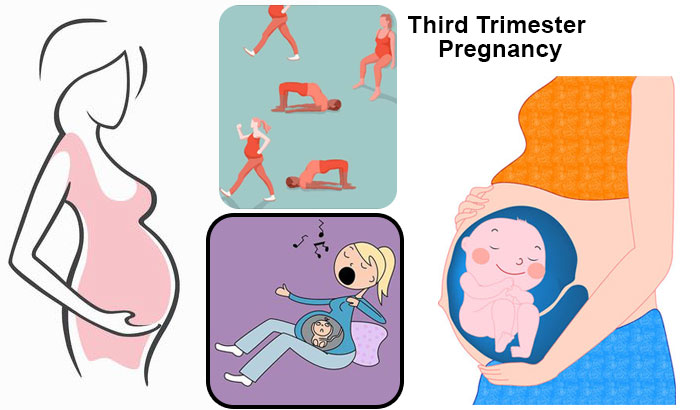 Keep a journal of when you have hot flashes to find out what might set them off. Triggers include:
Keep a journal of when you have hot flashes to find out what might set them off. Triggers include:
- hot drinks
- caffeine
- spicy foods
- tight clothing
- warm room
- anxiety
- stress
Ask your doctor to check your hormone levels. This involves a simple blood test. Some common health conditions like hyperthyroidism can also cause hot flashes and overheating.
Keeping cool during pregnancy is only a little different than keeping cool when you’re not pregnant. Protect yourself and your baby from heat stress by avoiding very hot temperatures. You know the drill — stay out of the sun and avoid hot tubs, saunas, and very hot baths.
Other ways to keep your cool include:
- stay hydrated — keep a cold water bottle with you all the time
- keep clear of the kitchen on warmer days — let your family cook for you
- avoid working out or exercising in closed, hot rooms — and no hot yoga during pregnancy
- keep your bedroom cool while sleeping — crank up the a/c or use an electric fan on very hot nights
- avoid too much bedding and wearing warm pajamas to bed
- splash cold water on your face and body to refresh
- soothe your tired feet in a cool water bath
- get a relaxing massage instead of using heating pads for aching muscles
Some studies show that a bit of heat is good for your baby.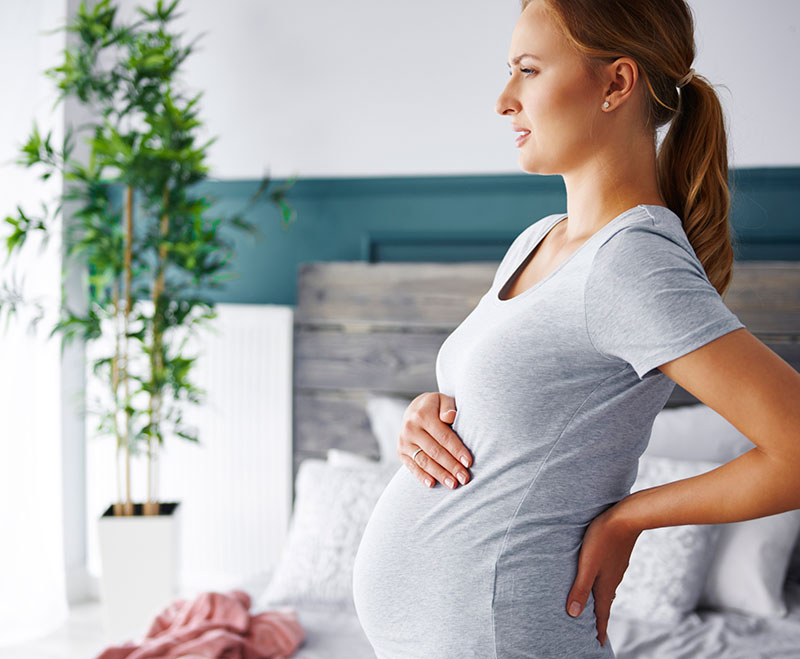 Medical research found that seasonal temperatures affect birth weight and length. The researchers found that babies born during warmer months were longer in length. Mothers in warmer climates during the middle of their pregnancy had heavier babies.
Medical research found that seasonal temperatures affect birth weight and length. The researchers found that babies born during warmer months were longer in length. Mothers in warmer climates during the middle of their pregnancy had heavier babies.
Feeling warmer and having night sweats can be a normal part of a healthy pregnancy. Your slightly raised body temperature means you have to be extra careful when going out on hot days and during strenuous activity.
Avoid hot tubs, saunas, and other activities that warm you up too much. Heat stress can be harmful for your baby.
Tell your doctor if you feel that you’ve overheated during pregnancy. If you have night sweats along with other symptoms, you might have health complications like an infection. See your doctor urgently if you also have:
- a fever higher than 101°F
- nausea
- flu symptoms
- muscle aches
- diarrhea
Gives a fever during pregnancy
Pregnancy and childbirthHealth
Throws a fever during pregnancy: probable causes
Why does it give a fever during pregnancy?
- Photo
- Legion Media
Hot flashes are provoked by ongoing hormonal changes, typical of pregnancy.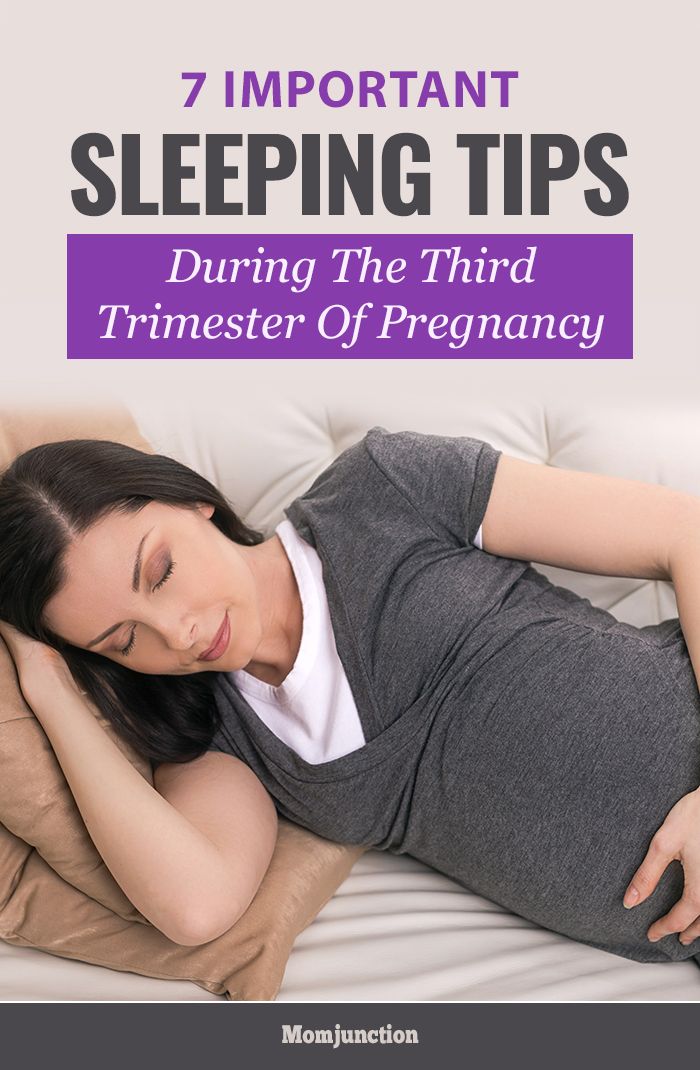 The very first reason is the shutdown of ovarian function, reminiscent of the state of menopause. The symptoms are generally similar - hot flashes, but the phenomenon is temporary and disappears without a trace after the birth of the baby.
The very first reason is the shutdown of ovarian function, reminiscent of the state of menopause. The symptoms are generally similar - hot flashes, but the phenomenon is temporary and disappears without a trace after the birth of the baby.
The body of a pregnant woman produces two types of hormones - estrogen and progesterone. Depending on the trimester, there is an increase in one or the other. It is these hormonal fluctuations that can cause a feeling of heat. Most often it spills over the chest and neck, including the face.
Another reason is an increase in body temperature. The norm for the period of pregnancy are indicators of 36.9 ... 37.5, but only if there are no symptoms of a cold. It is physiological hyperemia that can provoke hot flashes in a pregnant woman.
Throws into a fever during pregnancy: the first months
An increase in body temperature can be recorded at the very beginning of gestation. And the future mother, against the background of a sharp change in the usual hormonal background, throws her into a fever.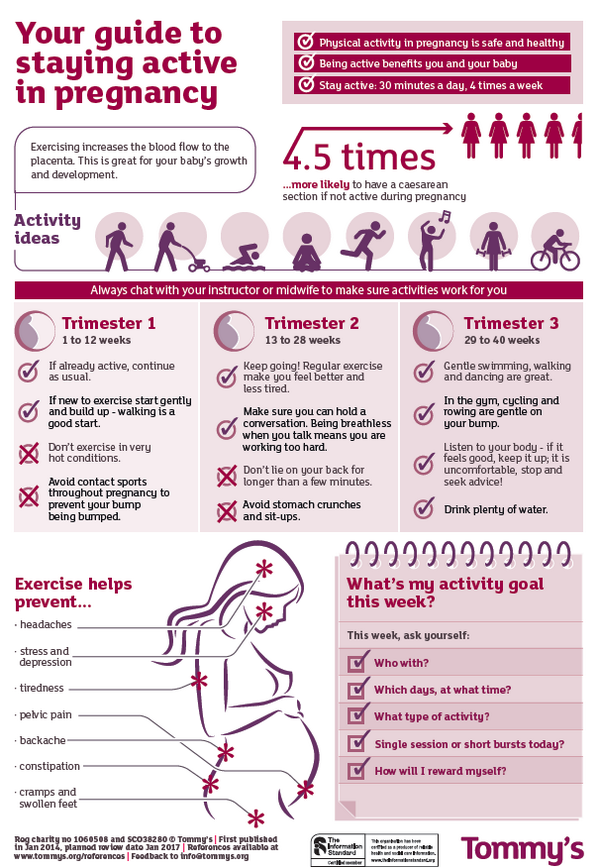
An increase in body temperature, accompanied by hot flashes, is an acceptable norm only in the first trimester.
Hot flashes in late pregnancy
Hot flashes are especially common in the second half of gestation - after about 30 weeks. An attack may be accompanied by the following symptoms:
- feeling hot;
- lack of air;
- rapid pulse;
- difficult breathing;
- redness of the face;
- increased perspiration;
- dizziness;
- nausea;
- unreasonable concern.
The condition may last for seconds or minutes.
Hot flashes will end after the birth of the child, when the hormonal background normalizes and returns to its previous state.
Help during an attack N.I. Pirogova, doctor Ultrasound
A woman may feel hot during different periods of pregnancy, most often in the early stages and before childbirth. This is due to hormonal changes in the body, since different hormones are needed to maintain pregnancy and directly start the mechanism of childbirth, and often the body needs to quickly and clearly reorganize to a “new job”.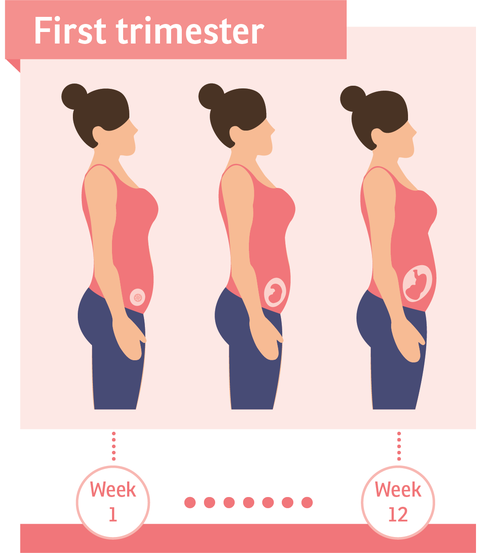 For example, in the early stages of pregnancy, the hormone estradiol, which is responsible for the onset of ovulation, the growth of the endometrium and the uterus itself, decreases, which in turn allows the hormone progesterone to increase, which works to maintain and prolong pregnancy. Due to the decrease in estradiol, which is a stress for the woman's body, adrenaline rises, which leads to an increase in blood flow, thereby increasing blood pressure and body temperature. Also, the reasons may be increased blood circulation, the formation of new vascular networks in the uterus due to an increase in its volume and the need to nourish the fetus.
For example, in the early stages of pregnancy, the hormone estradiol, which is responsible for the onset of ovulation, the growth of the endometrium and the uterus itself, decreases, which in turn allows the hormone progesterone to increase, which works to maintain and prolong pregnancy. Due to the decrease in estradiol, which is a stress for the woman's body, adrenaline rises, which leads to an increase in blood flow, thereby increasing blood pressure and body temperature. Also, the reasons may be increased blood circulation, the formation of new vascular networks in the uterus due to an increase in its volume and the need to nourish the fetus.
But "hot flashes" usually last about 5 minutes, while the body temperature does not rise above 37.8 degrees, the number of such attacks per day can be different for everyone, from one to 5-6. And it always has to do with hormonal fluctuations. However, this condition does not require any specific treatment. However, these attacks should not be confused with signs of a developing infection, viral or bacterial in nature.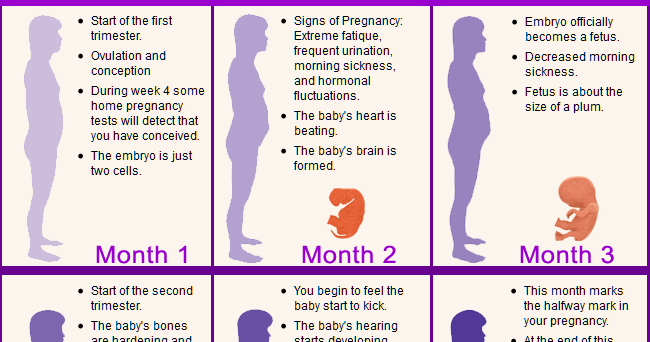 If the body temperature rises and keeps more than 37.8 degrees, the woman feels severe weakness, headache, sore throat, runny nose, pain in the lumbar region, etc., you should contact a specialist to establish a diagnosis and prescribe treatment.
If the body temperature rises and keeps more than 37.8 degrees, the woman feels severe weakness, headache, sore throat, runny nose, pain in the lumbar region, etc., you should contact a specialist to establish a diagnosis and prescribe treatment.
A woman can be thrown into a fever at any time of the day. Quite often, seizures occur at night. What can be done in such a case? Open a window and rinse your face with cool water. This is quite enough for the nausea that has appeared to recede.
A cold compress placed on the forehead can help alleviate unpleasant symptoms. The face is allowed to be wiped with ice cubes.
Hot flashes during pregnancy are a physiological norm. Doctors reassure that they do not cause any harm, except for a certain discomfort. The behavior of the body of a pregnant woman is sometimes unpredictable, it is imperative to listen to all the alarm bells.
Editorial staff of Wday.ru, Rumiya Safiulina
Tags
- pregnancy and childbirth
Reading today ? Will there be a second wave of mobilization in Russia? - experts answer (and this is scary) check if you are in danger
They sound scary: 16 original Russian names that you will never name your child
Pregnancy and heat
Very soon the thermometer will be 30 about C, and even at today's temperature, many expectant mothers experience discomfort! If the last months of your pregnancy fell on a hot summer season, you should prepare in advance for the risks associated with the onset of heat.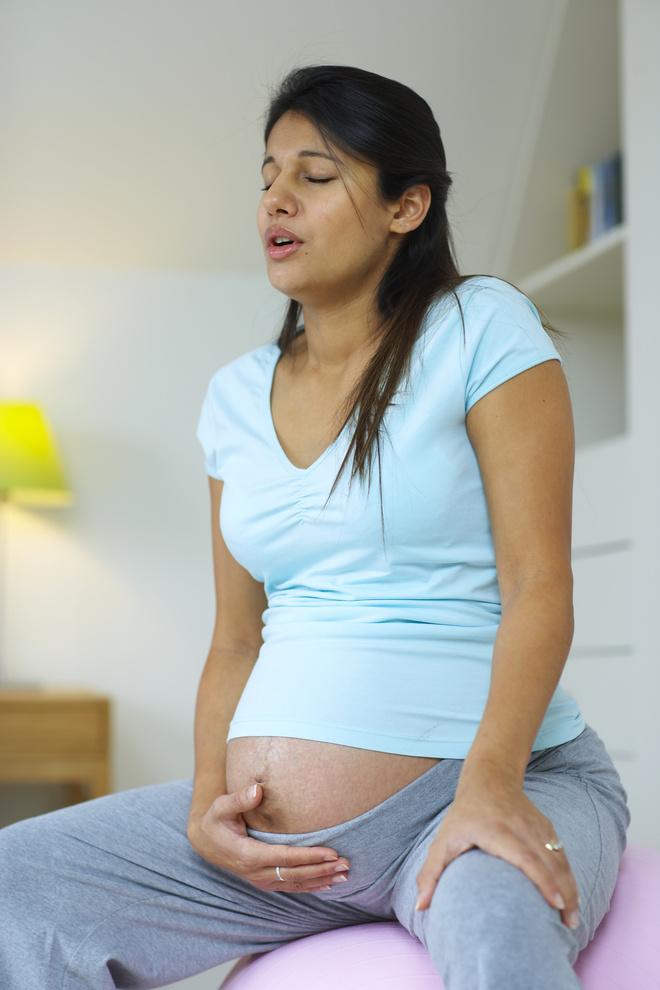 We will show you how to make the outdoor conditions more comfortable, especially in hot weather.
We will show you how to make the outdoor conditions more comfortable, especially in hot weather.
Why do pregnant women sweat more? During the last three months of pregnancy, the body experiences significant stress. Firstly, your mass increases due to the weight of the baby, amniotic fluid, placenta, which causes sensations comparable to the fact that every day you have to carry two 5-kilogram dumbbells with you everywhere. Secondly, these days the heart pumps 40% more blood than usual, providing your body and the fetus with all the necessary elements. It can be so hard for him that it even increases in size! And at this time, the uterus expands (after all, the child is growing) and shifts the heart from its usual place, because of which the heart muscle has to experience the hardest loads. To cope with them, additional energy is needed. The body produces it, heats up, and cools itself through sweat. The body needs to compensate for the lost moisture. But the advice "Drink more fluids, up to 3 liters a day" during pregnancy is not valid. Why? During pregnancy, edema often occurs, so excess fluid is undesirable. In addition, the liver and kidneys have a double burden, because they work for your baby, so you should not aggravate the situation with an extra liter of water. In addition, the volume of the bladder also decreases due to the growth of the fetus, so pregnant women go to the toilet more often. And then another 3 liters of fluid per day !!!
Why? During pregnancy, edema often occurs, so excess fluid is undesirable. In addition, the liver and kidneys have a double burden, because they work for your baby, so you should not aggravate the situation with an extra liter of water. In addition, the volume of the bladder also decreases due to the growth of the fetus, so pregnant women go to the toilet more often. And then another 3 liters of fluid per day !!!
But we can handle it!! And we can enjoy pregnancy even in the heat! How?
Here are a few simple and effective tips:
- Go out of town, to a country house or a tourist base for recreation - it is much easier to survive any heat in nature than in a stuffy, gassed urban area.
- Drink fluids as usual (aim for 1.5 liters a day). You can drink non-carbonated water, chilled tea, compote from non-allergenic fruits and berries. !!! You can’t: carbonated sweet drinks, kvass, coffee, pineapple and peach juices (to all other juices, except for apple and birch, be extremely wary, but it’s better to exclude them too), beer (and other alcoholic drinks).
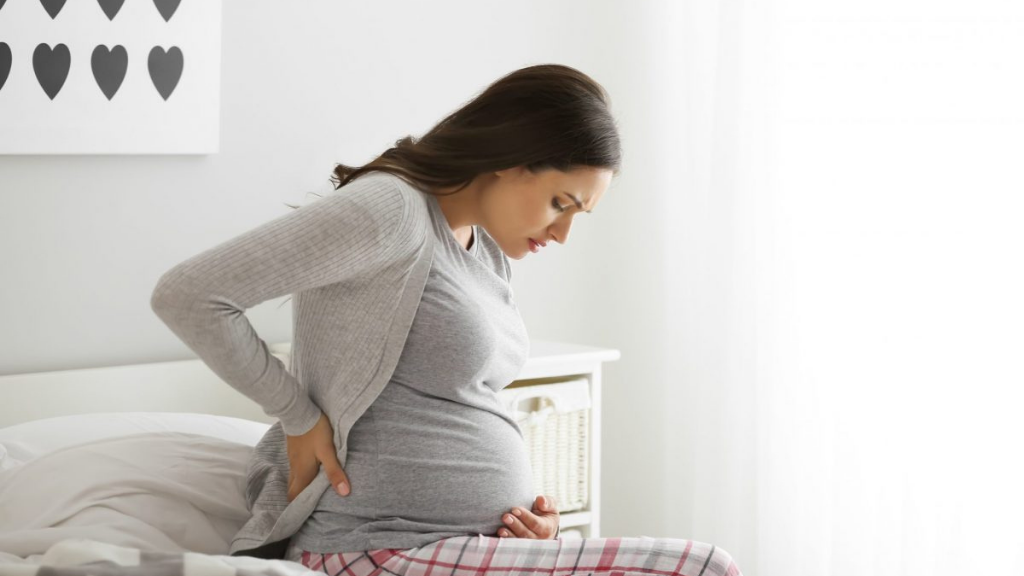 - Carry a bottle of water with you at all times and don't wait until you get thirsty. It is better to take a couple of sips than to drink it all in one gulp.
- Carry a bottle of water with you at all times and don't wait until you get thirsty. It is better to take a couple of sips than to drink it all in one gulp. - Use water for more than just drinking: showering, soaking hands and feet with cool water, and washing your face are all great ways to cool off. !!! Another important secret is thermal water (or a small spray bottle) in your purse! Carry it with you and sprinkle your face with water from time to time - it helps a lot;)
- Remember about your legs - in the heat they swell faster, ask your husband to give you a foot massage and, resting, put your feet on a special pillow.
- Try to wear comfortable, open-toed shoes without tight straps and made from natural material.
- Wear the right clothes, opt for natural fabrics, loose fit, and light colors that repel the heat of the sun.
- Refuse jewelry: if beads and earrings simply bring discomfort, then rings and rings pose a serious threat - fingers swell from the heat and, tied with metal, will be very sick.
